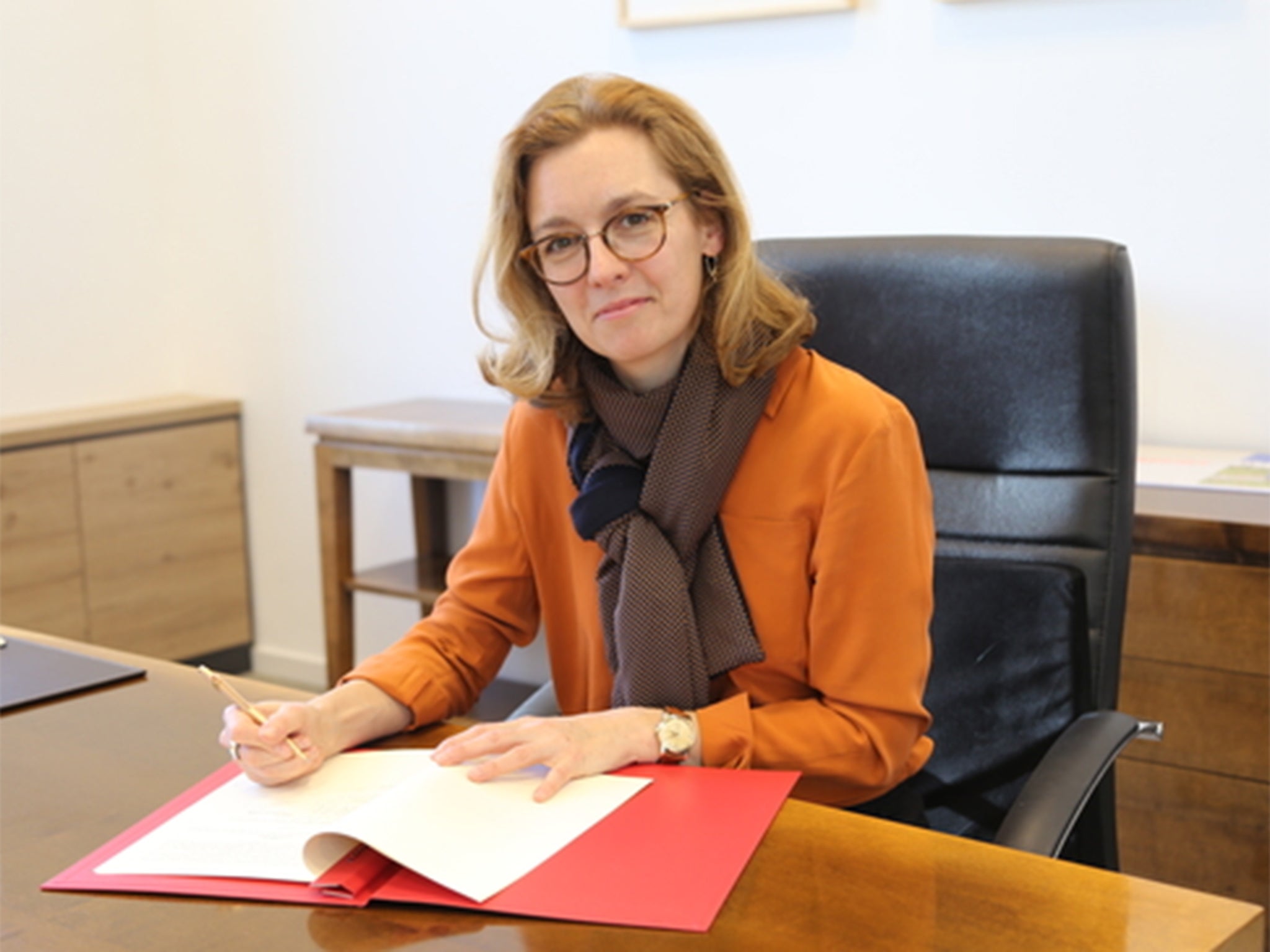Liechtenstein’s women only got the vote in 1984. Now the country could get its first female prime minister
Sabine Monauni could become the country's political leader following elections at the weekend

Your support helps us to tell the story
From reproductive rights to climate change to Big Tech, The Independent is on the ground when the story is developing. Whether it's investigating the financials of Elon Musk's pro-Trump PAC or producing our latest documentary, 'The A Word', which shines a light on the American women fighting for reproductive rights, we know how important it is to parse out the facts from the messaging.
At such a critical moment in US history, we need reporters on the ground. Your donation allows us to keep sending journalists to speak to both sides of the story.
The Independent is trusted by Americans across the entire political spectrum. And unlike many other quality news outlets, we choose not to lock Americans out of our reporting and analysis with paywalls. We believe quality journalism should be available to everyone, paid for by those who can afford it.
Your support makes all the difference.The tiny country of Liechtenstein appears on course to select its first female leader 37 years after its women first won the right to vote.
Sabine Monauni, a 46-year-old diplomat who serves as Liechtenstein’s envoy to the European Union and Belgium, is on the cusp of becoming the latest in a wave of women to lead European nations.
Within the last 12 months, voters in Finland, Estonia, Lithuania and Moldova have voted in female prime ministers. Estonia currently has a female president and PM.
The weekend elections in Liechtenstein saw record turnout in the nation of 39,000 despite the coronavirus pandemic. Two main parties were separated by less than 24 votes, and local news media outlets hailed one of the most “exciting” votes in the country’s recent history. Two main parties were separated by less than 24 votes, and local news media outlets hailed one of the most “exciting” votes in the country’s recent history.
“The voters wanted a change. But they didn't give a clear direction for it,” journalist Patrik Schadler wrote in the Liechtensteiner Vaterland newspaper.
Ms Monauni’s conservative Progressive Citizens’ Party and the rival centrist Patriotic Union wound up in a virtual tie in the elections, each receiving slightly less than 36 per cent of the votes and winning 10 seats in the 25-member parliament.
Each party added to their performance in previous 2017 elections, to the cost of smaller parties.
The rest of the seats were split between a leftist-green party and a far-right populist grouping, which appeared to lose ground.
Landlocked, German-speaking Liechtenstein is in some ways a throwback to the kingdoms of fairy tales.
Nestled in the Alps between Switzerland and Austria across an area half the size of Dublin or Philadelphia, it is famous for its medieval castles, often built along mountainsides with views of dramatic snow-capped peaks or verdant slopes.
Liechtenstein is one of the richest countries in the world, the beneficiary of decades of money-laundering and tax-avoidance profits. Per capita income is around €150,000, and the country continues to prosper from its robust banking sector even after it tightened rules in 2018 to get itself off blacklists as a money-hiding haven.
Whether Ms Monauni, whose party currently heads the cabinet, or her 42-year-old rival Daniel Risch is elected premier, they would be subject to the considerable authority of the Hereditary Prince Alois von und zu Liechtenstein, 52 years old, whose family has been ruling the country since 1699. His father, Prince Hans-Adam, handed him the reins of power in 2003.
Unlike other European constitutional monarchies, the country’s sovereign retains significant political powers which voters strengthened in a 2003 referendum.
The reigning monarch can dissolve the government, as well as being able to veto bills and referendums. The ruling family owns almost all of the nation's land and is the richest monarchy in Europe, worth an estimated €3.6bn.
Liechtenstein is also one of Europe’s most conservative countries, where attempts to outlaw abortion have repeatedly been quashed by the monarchy and voters.



Join our commenting forum
Join thought-provoking conversations, follow other Independent readers and see their replies
Comments